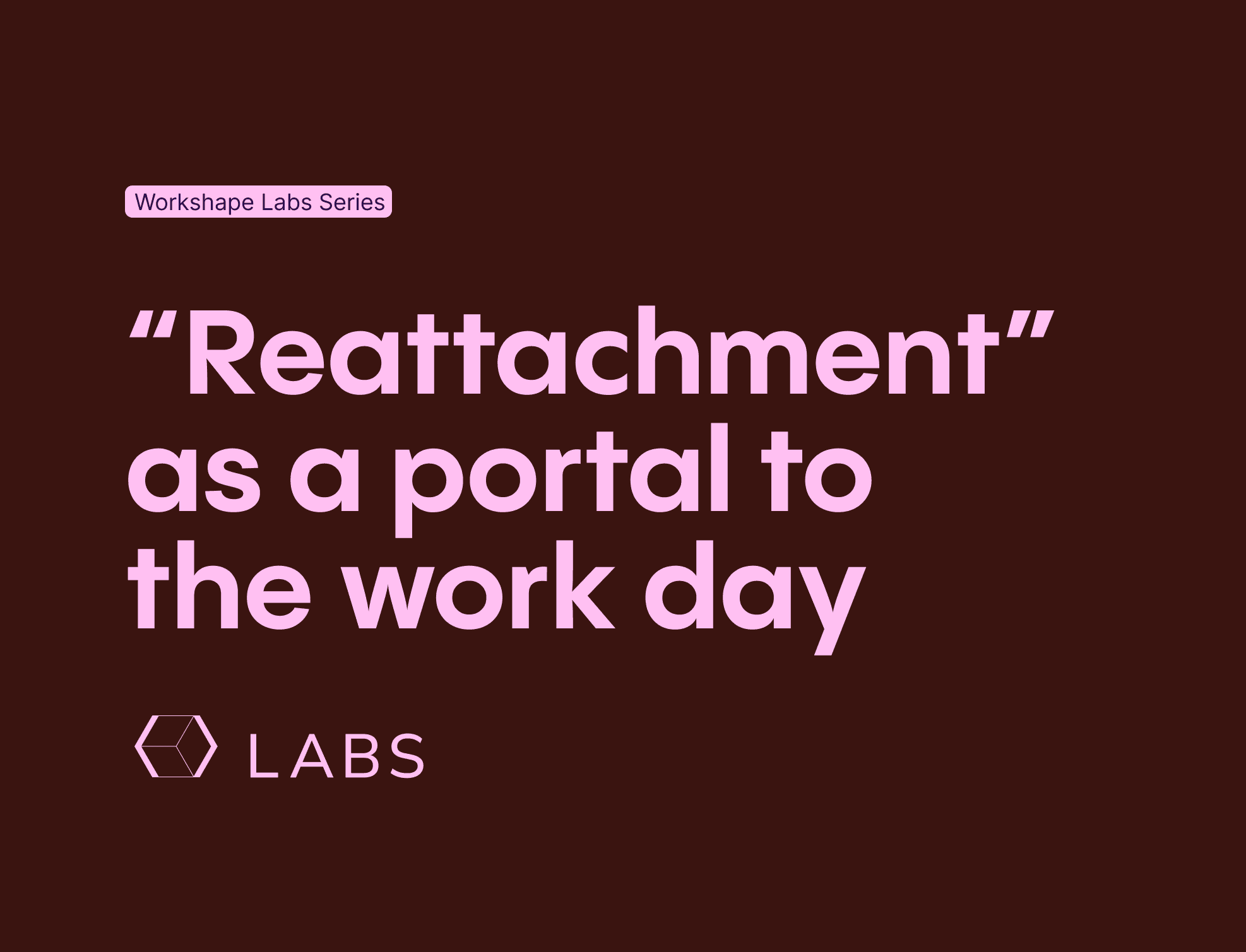The Human Blueprint with Aaron Hurst
Date
Feb 27, 2025
Author
Editor
At the heart of our work, our spaces, and our lives are humans. While the world around us evolves, our fundamental needs remain constant. In this virtual event, we dug into the importance of purpose with social entrepreneur Aaron Hurst, CEO and Founder of US Chamber of Connection and author of The Purpose Economy. We'll get into what it truly takes for humans to thrive, the timeless needs that shape our well-being, and discuss how we can better design our lives and environments to support them.
Events
Got Question?
In our recent virtual event, "The Human Blueprint," we had the privilege of hosting Aaron Hurst, visionary social entrepreneur, CEO and Founder of the US Chamber of Connection, and author of "The Purpose Economy." This insightful conversation explored what humans fundamentally need to thrive in today's rapidly changing world.
The Connection Crisis
Aaron opened with a sobering reality: we face two existential threats—climate change and the decline of social connection. Perhaps more concerning is that without addressing the latter, we may lack the collective will to tackle the former.
The statistics paint a troubling picture:
44 million American adults experience significant loneliness
26 million Americans report having no friends (nearly 8% of the population)
From 2003 to 2020, Americans spent 24 more hours alone and 20 fewer hours with friends per month
Among 15-24 year-olds, time spent with friends dropped by a staggering 70%
These numbers highlight a profound disconnect that affects our wellbeing, productivity, and even lifespan—having strong connections can increase life expectancy by 50%.
Redefining Purpose
One of the most illuminating portions of our conversation challenged conventional wisdom about purpose. Aaron identified four common myths:
Purpose is a cause - Many believe purpose comes from working for a nonprofit or in service-oriented fields. Yet research shows many people in these sectors remain unfulfilled. Purpose isn't about what you do, but how you approach it.
Purpose is a revelation - We often wait for a lightning bolt moment when our purpose will suddenly become clear. In reality, purpose is a practice we develop continuously, not something that simply reveals itself.
Purpose is a luxury - The belief that only those with certain titles or economic status can have meaning in their lives is fundamentally flawed. Often, those with fewer resources find greater fulfillment.
Purpose can be found outside work - Many compartmentalize, thinking they can lack purpose at work but find it elsewhere. Research shows this is rarely true—of fulfilled people, only 1% weren't fulfilled at work.
The Three Pillars of Fulfillment
According to Aaron's research, fulfillment comes from three essential elements:
Relationships - We need positive, consistent, and vulnerable interactions with others. This requires intentional cultivation, not just proximity.
Impact - We need to perceive that our work makes a difference. This often requires reflection and acknowledgment.
Growth - We need to feel we're developing not just professionally, but as human beings.
When designing workplaces and experiences, optimizing for these three pillars creates environments where people can thrive.
The Six Points of Connection
Just as we understand our need for regular meals, Aaron argues we need a framework for connection. His research identified six essential elements everyone needs:
A neighbor you can reach out to when you need help
At least two meaningful one-on-one interactions weekly outside of home or work
A community built around shared identity and belonging
A community formed around a shared passion or activity
A "third place" outside of home and work
Some form of service to your community
When these elements are present, individuals thrive, and the ecosystem around them flourishes.
Implications for Workplace Design
The conversation yielded several insights for workplace strategists and designers:
Rethink assignments - Universities are using algorithms to pair roommates based on lifestyle compatibility rather than academic majors. Could workplaces assign seating based on work styles and preferences rather than departments?
Create collision spaces - College campuses are dedicating more space to social areas than classrooms. Workplaces should similarly prioritize spaces designed for meaningful interaction.
Focus on activities, not identities - Rather than creating affinity groups based solely on demographics, consider groups centered around shared activities and interests, which can build bridges across differences.
Offer resources for connection - Consider providing equipment or resources that facilitate shared experiences outside of work, such as outdoor gear or hobby materials.
Measure what matters - Instead of complex engagement surveys, focus on three simple questions: Do people have meaningful relationships? Do they feel they're making an impact? Are they growing?
The AI Opportunity
As AI continues to transform work, Aaron offered a compelling perspective: "A professional is someone who can do something over and over again with similar results—which is also the definition of what AI can do."
This suggests the future belongs to the "unprofessional"—the creative, the social, the uniquely human aspects of work that cannot be easily replicated. Rather than seeing AI as a threat, we can view it as freeing us to focus on connection, creativity, and purpose.
Moving Forward
As Aaron eloquently stated, "Connection is the number one challenge in our country and in the world." Our work as workplace strategists, designers, and leaders gives us unique influence over environments that can either foster or hinder human connection.
The path forward isn't just about designing beautiful spaces—it's about creating the conditions for meaningful relationships, impactful work, and personal growth. When we succeed, people leave work energized rather than exhausted, excited about the connections they've made and the purpose they've found.


